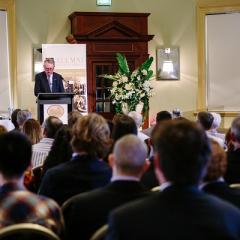Economic Theory Seminar Series: Costly Public Transfers in Repeated Cooperation under Imperfect Monitoring
We consider a continuous-time repeated game with imperfect monitoring of hidden production and the possibility that players can make public imperfect transfers between each other. Money transfers are costly: only a fraction k<1 of the money sent is received by the recipient (the case k=0 corresponds to pure money burning). We characterize the set of payoffs attainable in pure strategy public perfect equilibria (p-PPEs), as well as the dynamics in the efficient p-PPE. We show that adding the possibility of costly transfers increases the set of attainable p-PPE payoffs, because it allows one to provide incentives to one player with less cost to the other player. We also show that costly transfers are used rarely and only after extreme histories when promised utilities hit the individual rationality constraints.
About Economic Theory Seminar Series
A seminar series designed specifically for economic theory researchers to network and collaborate.

